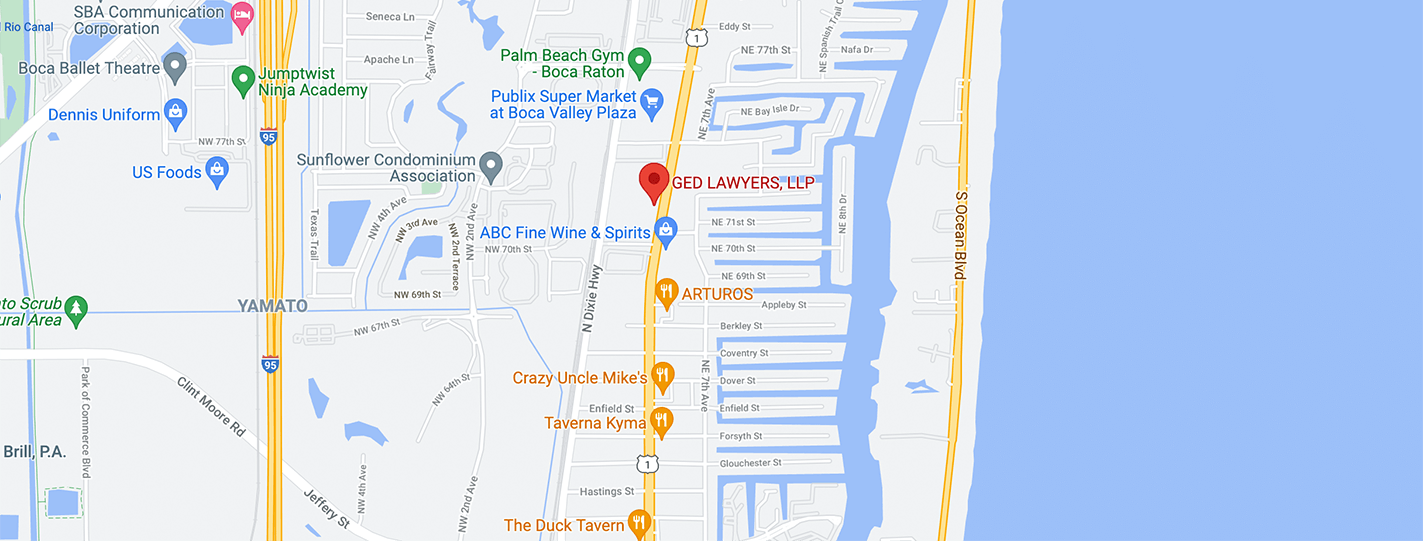According to the National Highway Traffic Safety Administration, distracted driving is “any activity that diverts attention from driving.” This can include anything from texting to talking to other passengers in the car. Anything that can take your attention away from what is in front of you while you are driving can be considered a distraction.
Distracted driving is not only dangerous, it is deadly, claiming the lives of 3,142 individuals in 2019 alone. And while law enforcement in Tampa and the state of Florida has tried to educate residents about the importance of not driving distracted with the Put it Down campaign and the Wireless Communications While Driving Law, we continue to see this behavior on a daily basis.
Our experienced Tampa distracted driving accident attorneys at Ged Lawyers, LLP represent drivers who have been injured in these very accidents to ensure that they get the compensation they deserve for their injuries.
Types of Driver Distractions
There are three main categories of driver distractions:
- Manual, or any activity that takes the driver’s hand off the steering wheel
- Visual, or any activity that takes the driver’s eyes off the road, or
- Cognitive, or any activity that takes the driver’s mind off the task of driving.
we are here for our clients and their legal needs, with proficiency in a broad range of fields. GET A FREE CONSULTATION
Manual Distractions
Any distraction that causes a driver to take one or both hands off the wheel to perform a task is considered a manual distraction. These can include anything from eating while driving to assisting your child with their car seat. Manual distractions take away the driver’s ability to steer their car in reaction to something on the road ahead of them or a potential Boca Raton car accident. Inability to steer can lead to a car hitting another vehicle or veering off the road or into other traffic.
The most common manual distractions are
- Texting
- Eating or drinking
- Grooming
- Lighting a cigarette
- Adjusting a child’s car seat or seatbelt
- Tending to a pet
Visual Distractions
Any distraction that causes a driver to take their eyes off the road ahead of them is considered a visual distraction. Visual distractions can include things like trying to input an address into GPS or fiddling with other electronic devices while driving. Without visually attending to the road in front of them, a driver can’t assess the situations around them for potential safety hazards, leading to serious accidents.
The most common visual distractions are
- Texting
- Looking at a GPS
- Trying to find something in the car
- Switching stations on the radio
- Adjusting the interior temperature in the car
with compassionate advice and professional assistance. CALL US TODAY
Cognitive Distractions
Cognitive distractions can be deceiving since a driver can look like they have full control of their driving. A driver’s hands may be on the wheel and eyes on the road, but if their mind is distracted, they still run the risk of a serious accident. Merely talking to others in the car, especially if they are in the backseat or are children, reduces the cognitive focus of a driver exponentially.
The most common cognitive distractions are
- Texting
- Speaking to other passengers
- Daydreaming
- Drowsiness
We look forward to hearing from you and helping you with your legal needs. CALL FOR A FREE EVALUATION
Texting — The Most Deadly Distraction
Using your phone to text or check a text or message is a three-in-one distraction and just as deadly. A driver who has their hands off the wheel to pick up their phone, eyes off the road to read a message, and mind distracted with the content of the text roll all these distractions into one. This is why texting is now the most deadly form of distraction on our roads in Tampa and across the country. Texting and driving is not just against the law, it is considered negligence.
Call an Experienced Distracted Driving Accident Attorney in Tampa
If you have been injured in an accident caused by a distracted driver, contact our experienced Tampa distracted driver accident attorneys at Ged Lawyers, LLP. We have dedicated our careers to holding negligent parties accountable for the harm they cause. We are here to ensure that your legal rights are being represented and that you get the compensation you deserve after a serious accident. Call us at (561) 995-1966 or contact us online to schedule a no-cost consultation.
